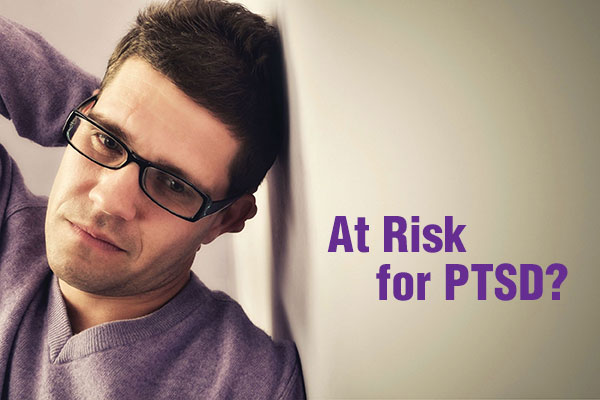Surviving Cancer Puts You at Risk for PTSD
Do You Know How to Recognize the Symptoms?
by Sophia Smith, MSW, PhD
Did you know that adult cancer survivors can experience symptoms of post-traumatic stress disorder, or PTSD? These symptoms can persist for many years following a cancer diagnosis and treatment. Many cancer survivors are unaware of their risk for developing PTSD and may not recognize the symptoms. They may feel like they are “going crazy” and that their loved ones don’t understand what they are going through.
PTSD symptoms result from exposure to a traumatic or terrifying event, such as military combat, physical or sexual assault, or a life-threatening illness like cancer. The symptoms present in four clusters:
- intrusion – nightmares, flashbacks, upsetting memories
- avoidance – skipping medical appointments, refusing to talk about cancer
- negative changes in mood and thoughts – guilt, blame, loss of interest in activities
- arousal – difficulty sleeping and concentrating, irritability, hypervigilance
Most people associate PTSD with violent traumatic events like combat exposure, childhood abuse, sexual or physical assault, and motor vehicle accidents. It is less well known that nonviolent traumas such as a cancer diagnosis and treatment often initiate PTSD symptoms. And survivors who have experienced multiple traumas are at increased risk. Moreover, PTSD symptoms are often triggered by a single experience, yet the cancer experience may be prolonged, punctuated by numerous stressful events, such as cancer treatments, follow-up tests and appointments, and the potential recurrence of cancer.
Rates of cancer-related PTSD are about twice that of the general population. Roughly 1 in 10 cancer survivors will develop full-blown PTSD. And About 1 in 3 cancer survivors meet criteria for at least one PTSD symptom cluster.
In a longitudinal study among 886 lymphoma survivors, about 1 in 3 participants reported significantly bothersome symptoms in at least one PTSD symptom cluster. And these symptoms persisted or worsened at the five-year follow-up study.
Rates of cancer-related PTSD are about twice that of the general population. Roughly 1 in 10 cancer survivors will develop full-blown PTSD. And about 1 in 3 cancer survivors meet criteria for at least one PTSD symptom cluster.
Some survivors are at an increased risk for cancer-related PTSD. This includes young adults, people with low incomes, and cancer survivors who have experienced prior trauma, have less social support, endure more intense treatment, and have advanced-stage or recurrent disease.
Some of the most common PTSD-related symptoms reported by cancer survivors include
- Nightmares related to cancer diagnosis or treatment
- Avoiding medical appointments and follow-up cancer visits
- Blaming themselves for the cancer
- Experiencing “survivor guilt”
- Difficulty falling or staying asleep
- Difficulty concentrating
In addition, PTSD is often accompanied by symptoms caused by other mental health conditions, such as depression (including suicidal thoughts and actions), anxiety, panic disorder, and substance abuse. Therefore, if you are experiencing any concerning symptoms, it is critically important that you are assessed by a trained mental health professional who can get you the help you need.
Cognitive behavioral therapy and cognitive processing therapy are the most effective non-medicinal approaches to treating PTSD symptoms, followed by prolonged exposure therapy and eye movement desensitization and reprocessing (EMDR) therapy. Crisis intervention techniques delivered by licensed social workers can also be effective. In addition, there are a growing number of online and mobile apps that are available to help decrease a person’s stress, such as those that deliver mindfulness, breathing, and relaxation exercises. Medications such as SSRIs and SNRIs can also be prescribed to help treat PTSD symptoms. These may be used in conjunction with non-pharmacologic therapies.
Because of the persistence and potential worsening of PTSD over time, it is important that these symptoms are identified and treated early. If you think you may be experiencing PTSD symptoms, discuss them with your doctor, nurse, social worker, or other healthcare provider right away. They will refer you to the right person for further assessment and treatment if needed.

Dr. Sophia Smith (sophia.smith@duke.edu) is an associate professor at the Duke School of Nursing in Durham, NC. Her research explores ways to improve the quality of cancer care, with a primary focus on leveraging technology in delivering behavioral health interventions to the cancer survivor community.
This article was published in Coping® with Cancer magazine, November/December 2019.


